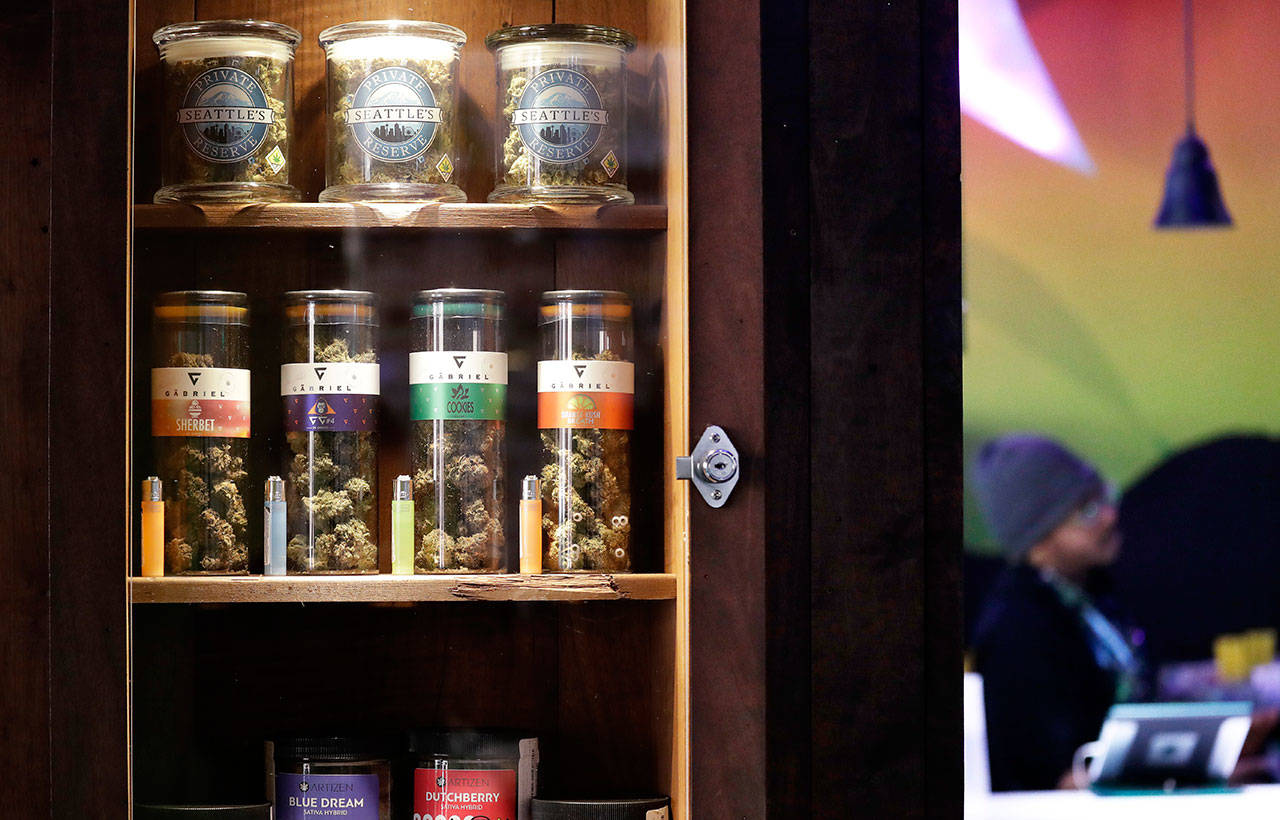By The Herald Editorial Board
It’s been more than 85 years since the end of Prohibition, yet state and federal governments still write law and policy regarding the making and selling of alcohol. Considering the history in legalizing what was once illegal, it probably shouldn’t be a surprise that lawmakers continue to work out the kinks for an industry that in Washington state only opened its first retail shop less than five years ago.
It took about two years following the voter’s approval in 2012 of Initiative 502, which legalized recreational marijuana in Washington state, for state lawmakers, officials and what was renamed the state Liquor and Cannabis Board to develop the legal framework to license and regulate cannabis businesses. Since then the state and industry representatives have worked on numerous adjustments to ensure regulation that is fair to growers, processors and retailers while honoring responsibilities to keep marijuana from falling into the hands of kids, crossing state lines or finding its way onto the black market.
Only during the recently completed session, did state lawmakers adopt legislation that eased regulations that were severely penalizing — and sometimes shutting down — growers and others for mistakes as minor as a smudged inventory tag on a marijuana seedling or other inconsequential infractions. Senate Bill 5318 sought to emphasize compliance with regulations rather than aggressive enforcement that was leading to the permanent loss of a license for some businesses.
Signed by the governor last week, the legislation takes effect later in July.
Now, attention has turned to Congress to fix another catch for the industry and its regulation: banking.
While 33 states as well as the District of Columbia, Guam and Puerto Rico have legalized recreational or medical cannabis, the possession and sale of marijuana remains illegal under federal law, which means that banks — even in states where it’s legal and licensed — have had to reject the business of those in the cannabis industry out of fear the banks could be prosecuted under federal money-laundering laws.
That’s left growers, processors and retailers to operate on a cash-only basis that can leave them a target for criminals, posing a threat to employees who have to handle large amounts of cash. It also complicates the state’s efforts to track revenues for taxes and compliance with regulations.
Bills in the U.S. Senate and House, called the SAFE Banking Act, would shield banks and other financial institutions from those federal rules and allow them to do business with the cannabis industry, offering a range of services, including the use of credit and debit cards at retail locations, the use of checking and savings accounts, access to credit and loans and employee payroll services. This should also provide relief to those businesses that provide goods and services to those in the marijuana industry.
Among the prime sponsors in the House is Washington Rep. Denny Heck, D-10th District. The legislation in the House has the support of eight of the state’s 10 House members, including Reps. Suzan DelBene, D-1st District, and Rick Larsen, D-2nd District. Sen. Patty Murray, D-Washington, has signed on to the Senate version.
While only one Republican from the state House delegation — Rep. Dan Newhouse of the 4th District — has signed on as a co-sponsor, the legislation has bipartisan support in both chambers. The House version has 184 co-sponsors — more than a third of the House — and recently passed the Financial Services Committee, 45-15. A vote on the House floor could come as soon as next month.
The legislation has support outside of Congress, as well, including the top law enforcement and financial regulators among the states. The National Association of Attorneys General, led by a coalition of 38 attorneys general, including Washington’s Bob Ferguson, called on Congress to adopt the legislation, as did a national association of state treasurers.
Washington state Treasurer Duane Davidson, a Republican, successfully won the National Association of State Treasurers’ adoption of a similar resolution seeking passage of the banking legislation.
“This is not about legalizing cannabis nationwide — it’s already legal in Washington — this is about creating a safer cannabis industry by allowing these mostly cash-based businesses to bank with their local financial institutions,” Davidson said.
It also has support from the American Bankers Association. While making clear it took no position on the moral issues of legalizing marijuana, the ABA said, “the time has come for Congress and the regulatory agencies to provide greater legal clarity to banks operating in states where marijuana has been legalized for medical or adult use.”
Even Rob McKenna, who opposed Initiative 502 when he served as Washington state’s attorney general, tweeted that the proposed change to federal law “just makes sense.”
The legislation before Congress needn’t be seen as the next step on the slippery slope toward federal legalization of marijuana; that can remain an issue for individual states to decide.
But for Washington state and others — where a clear majority of voters elected to make the sale and possession of marijuana legal — federal law should be amended to allow those businesses to conduct their finances in a safe and accessible manner and for state regulators to be able to keep an eye on those transactions.
Talk to us
> Give us your news tips.
> Send us a letter to the editor.
> More Herald contact information.

























